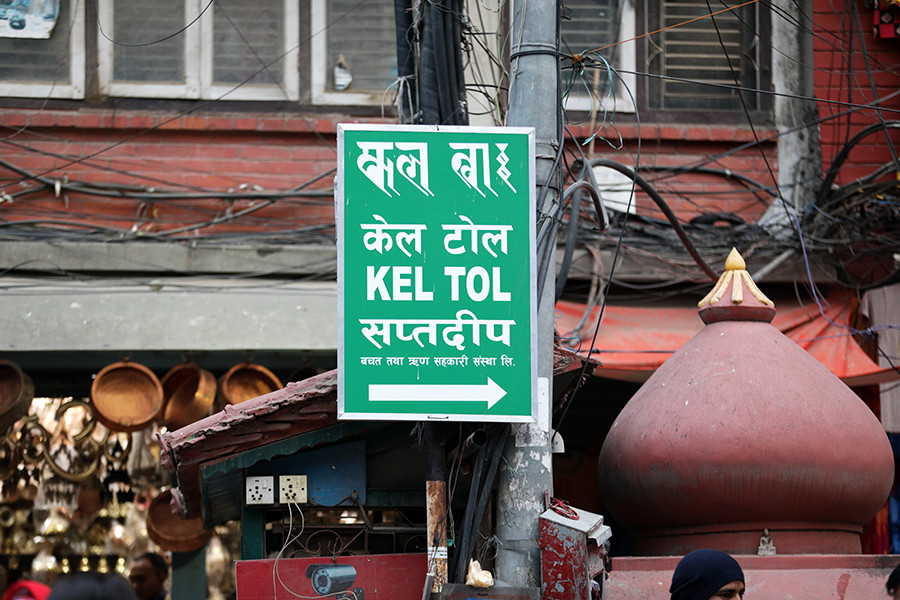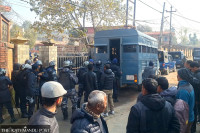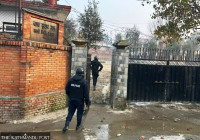Valley
New names for old places reflect the changing times, but not everyone is happy
Old place names were born out of tradition, culture and heritage, which new names ignore, say locals
Shashwat Pant
When you ask Ranjit Shrestha where he is from, the 82-year-old will tell you he’s from Wongha. The word Wongha might not sound familiar to many, but for elderly Newars in Kathmandu, it is where they were born and raised.
“Indra Chowk is Wongha to us,” said Shrestha. “We still call it Wongha but the younger generations don’t.”
With the passage of time and changing social milieus, traditional names like Wongha have changed. Yen became Kathmandu, Yala became Lalitpur and Khwopa became Bhaktapur. Even Boudha Stupa had a different name—Khasti Mahachaitya—before the Panchayat era, according to historical records.
But this change in name hasn’t been limited to the Valley. In more recent years, cities and villages across the country have embarked on a name-changing spree. While many of these new names were meant to reflect the change in the country’s socio-political dynamics, a consistent criticism has been that many are either unaware of these name changes or are reluctant to use a new name for a place they’ve called home for decades.
A few years ago, the city of Bhairahawa had its name changed to Siddharthanagar to make explicit that the place was the birthplace of Siddhartha Gautam, the Buddha. But people have been reluctant to use the name Siddharthanagar with a vast majority still calling the place Bhairahawa.
”No one calls it Siddharthanagar. This whole name changing charade was quite pointless,” said Sita Bhuval, a local. “It can officially be Siddharthanagar, but it will never be so for us. Everyone I know still calls it Bhairahawa.”
Many also argue that new names are not rooted in the culture and traditions of the place and have been imposed upon local populations.
Take Wongha, for example. The place was called Wongha because of a gagri placed in the area centuries ago by a king, say locals.
“Wongha is a combination of two words: ‘wonta’ which means east and ‘gha’ which means gagri,” said Sharad Kasa, a librarian at the Asa Safu Kuti, a public library of Nepali and Nepal Bhasa manuscripts. “As the gagri was placed in the eastern part of the city, the place was called Wongha.”
According to Kasa, during the time of Jung Bahadur Rana, the Newar community had to throw away most of their books, which included literary works, manuscripts and educational documents.
“Many fled the Valley during that time. But we didn’t just lose people. We lost a lot of knowledge as the Newar community was forced to hand over their books to the Ranas,” said Kasa. “Jung Bahadur felt that killing people wasn’t necessary, just taking away their knowledge was enough.”
Changing names isn’t something unique to Nepal. Neighbouring India has gone through a number of name changes. Under British rule, Kolkata became Calcutta and Chennai became Madras. After independence, India has either gone back to its old names or has invented new ones, as with Mumbai over Bombay.
In Nepal, the name changes aren’t so much about explicit colonialism but rather a more insidious form of cultural colonialism, says Chandrakishore, a Madhes-based journalist, who feels that a lot of names in the Madhes have been changed without much thought.
“It’s like they’ve tried to ‘Hindufy’ the places by naming them after gods and goddesses,” said Chandrakishore. “But not much attention was paid to why the names needed changing or why it was what it was, nor were the sentiments of locals kept in mind while deriving the change, especially here in the Madhes.”
According to Chandrakishore, locals are uncomfortable because the new names have little to do with the historical identity of the place.
“The names had a reason behind them. They were based on geography, culture or flora and fauna. But now names have given based on sentiment,” he said.
After the 2017 local elections, a village called Maskidar in Babai Rural Municipality was renamed to Suryanagar, and the reason, many allege, is just politics.
The elected chair of Babai Rural Municipality, Bhubaneshwor Paudel, is from the former CPN-UML whose election symbol was a sun. Despite media reports about the name change and the ensuing controversy, Paudel denied that the rural municipality was named Surayanagar.
“It’s called Adarsha Nagar and it was named thus with everyone’s agreement,” Paudel told the Post. “It wasn’t my decision alone and it wasn’t a political one.”
“The place is called Suryanagar. We had protested to take back the name, but Babai Rural Municipality were adamant to call it Suryanagar. They didn’t even consult with us locals. Even though the official name is Suryanagar, we locals still call it Maskidar,” says Bal Bahadur Oli, a local resident of Maskidar.
But just as often, name changes don’t have a political motive—place names, like language, evolve depending on their usage by a variety of users.
“When it comes to Kathmandu Valley, people came here from all over Nepal and they brought their own language and culture which was merged with the Newar community,” said 65-year-old Anil Tuladhar, an Ason resident. “I wouldn’t say it’s a bad thing, but it’s also has negative impacts.”
What is today called Maitighar Mandala was once called Phibo Khya but the name changed when one of the homes surrounding the mandala sported a massive poster of the classic Nepali film, Maitighar.
“Referring to the hoarding board, everyone from bus drivers to the general public started calling the place Maitighar and the name just stuck,” said Tuladhar. “I’m sure there are more places that have had a name change due to such reasons. It’s just about human convenience.”
But Sailendra Bajracharya, a heritage campaigner, believes that something intangible is lost when names of places are changed. Old names have a history behind them that could be lost to time.
“Guccha tole has nothing to do with guchha (glass marbles),” said Bajracharya. “It used to be called Gungocha where ‘gun’ is nine, ‘cha’ is a round ball. The place had a bahal, a monastic complex, with nine holes in the ground which had to do with Buddhism and the meaning of life. But as it was something to do with putting balls in holes, people likened it to playing guchha.”
According to Bajracharya, place names once reflected the lifestyle and traditions of the space and thus, gave it life.
“Hitis were where people came to collect water and mughas were places where people conducted trade. Places were given names according to what happened there,” said Bajracharya.
Kasa the librarian agrees that something important is lost when names disappear.
“The importance of a name like that is that it teaches people what a place is about,” said Kasa.




 17.12°C Kathmandu
17.12°C Kathmandu












